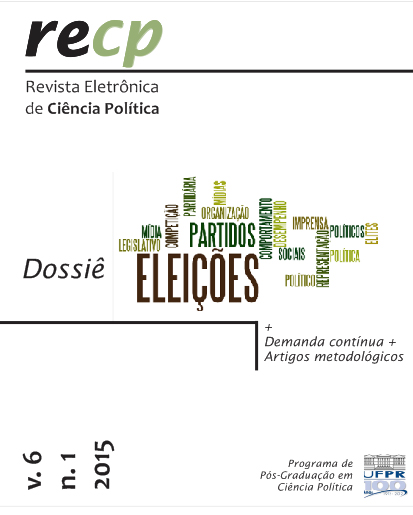POWER DIMENSIONS AND CHINESE STRATEGY FOR OIL ACQUISITION AT THE DAWN OF THE 21ST CENTURY: AN ANALYSIS OF THE CASES OF KAZAKHSTAN, ANGOLA AND VENEZUELA
DOI:
https://doi.org/10.5380/recp.v6i1.39783Palavras-chave:
international politics, power, China, energyResumo
The objective within the present study is to evaluate the modalities of the Chinese power projection, as part of the country´s strategy to gain access to develop crude reserves in developing countries. The notion of power is treated through its conceptualizations within Joseph Nye´s (1990; 2004; 2011) liberal-institutional perspective combined with Zhimin Chen and Lulu Chang´s (2013) further elaborations of this. Recent Chinese relations with Kazakhstan, Angola and Venezuela are reviewed in order to be able to classify the Chinese power projection with regards to the different conceptual dimensions, to which it relates. A parallel objective is to assess the consistency between 1) the fundamental Chinese foreign policy goals, 2) the country´s strategy regarding energy related cooperation and obtainment, as well as 3) the specific tactics applied in the source countries examined. A strong reliance upon tangible power resources for material inducement is identified, as an essential part of the Chinese energy strategy. This however, should not be understood as being in contrast to or as incompatible with measures of soft power inducement, but rather as a necessary pre-condition for the establishment of channels through which intangible power resources can be applied.
Downloads
Publicado
Como Citar
Edição
Seção
Licença
Direitos Autorais para artigos publicados nesta revista são do autor, com direitos de primeira publicação para a revista. Em virtude de aparecerem nesta revista de acesso público, os artigos são de uso gratuito, com atribuições próprias, em aplicações educacionais e não-comerciais. O conteúdo pode ser reproduzido para fins não-comerciais, desde que citada a fonte, seguindo a licença Creative Commons.
Além disso, o autor compromete-se a citar a primeira edição do artigo em todas as edições posteriores, incluindo em línguas estrangeiras.



